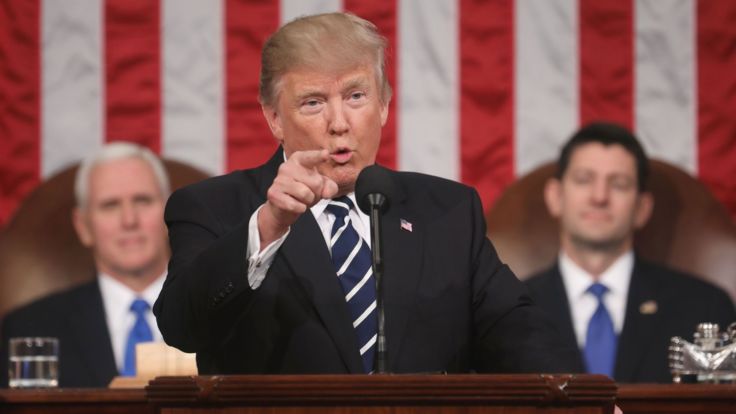The Trump administration has rolled out a revised edition of a controversial immigration executive order.
The new order which goes into effect on 16 March, temporarily suspends immigration into the United States from now only six predominantly-Muslim countries.
Citizens from Libya, Syria, Yemen, Iran, Somalia and Sudan will be subjected to a 90-day ban on travel to the United States.
Iraq was previously listed among those nations, but a senior Department of Homeland Security official said the country was removed after the Iraqi government assured the Trump administration that they would share more information with the United States.
It comes as Nigeria has warned its citizens not to travel to the US and says Nigerians with valid visas have been put on the next plane home.
Nigeria is not one of the six and it is not clear at this stage whether the Nigerian action is linked to the new travel ban.
The new order does not affect existing visas approved before 16 March and does not apply to current lawful permanent residents and green card holders.
The State Department says that those visas revoked because of the original travel ban have been fully restored.
The new order attempts to reduce the number of refugees allowed in the United States.
Under the plans, no more than 50,000 will be allowed to enter in 2017.
Syrian refugees will not however be subject to a blanket ban.
All refugees though will be subjected to a 120-day suspension.
The new travel order also omits a controversial provision from the original that would have prioritised religious minorities in admission decisions.
The language of the order has been shaped to ensure it passes the legal test and won’t be blocked in the courts.
In an unusual step, it was not signed in front of the press.
After the signing of the executive order, Secretary of State Rex Tillerson said: “To our allies and partners around the word, please understand this order is part of our ongoing efforts to eliminate vulnerabilities that radical Islamic terrorists can and will exploit for destructive ends.”
The controversial original policy was put on hold.
A three-judge panel from the Ninth US Circuit Court of Appeals ruled unanimously to uphold a federal judge’s restraining order on the travel ban in early February which delayed the executive order’s implementation.

